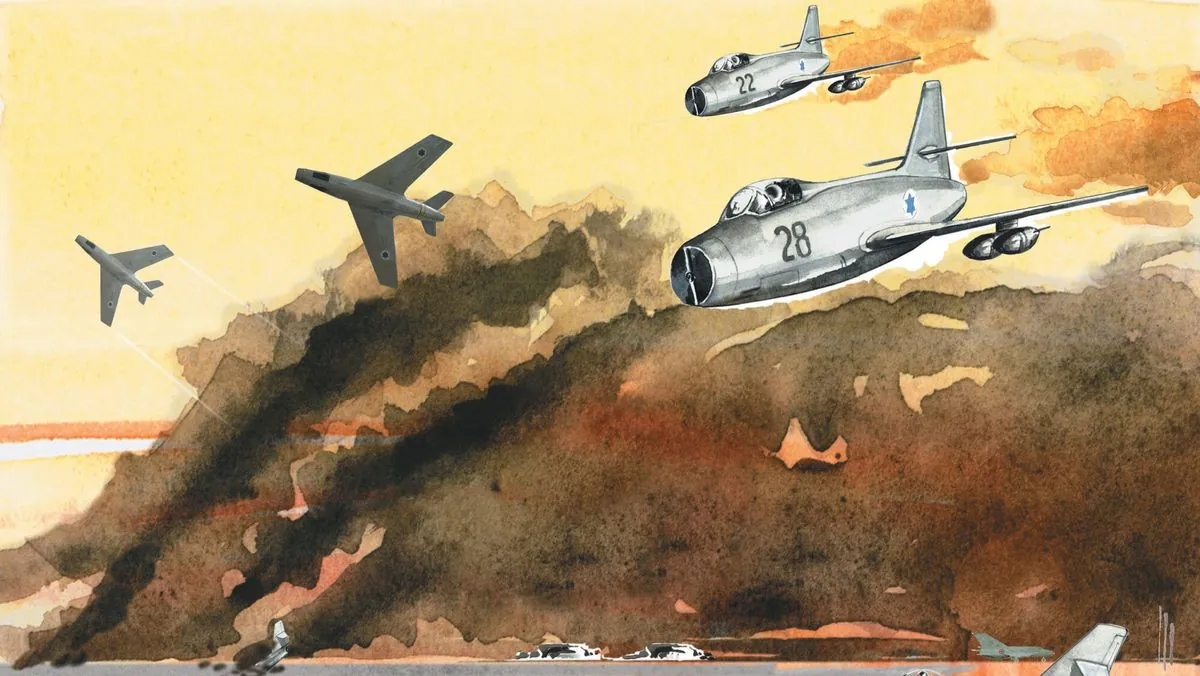One year after the initial announcement, tensions remain high as Israeli forces continue their operations against Hezbollah targets in Lebanon. The Israeli military has reiterated its intention to conduct airstrikes on strategic weapons caches allegedly hidden in residential areas of Lebanon's Bekaa Valley.
Rear Admiral Daniel Hagari, spokesperson for the Israeli military, issued a statement urging civilians to evacuate the targeted areas immediately. The announcement comes as part of ongoing efforts to neutralize Hezbollah's military capabilities, which have been a source of concern for Israel for decades.
The Bekaa Valley, a fertile region in eastern Lebanon, has long been considered a stronghold for Hezbollah since the 1980s. This area has played a significant role in the group's operations and infrastructure development. Hezbollah, founded in 1985 during the Lebanese Civil War, has evolved into a complex organization with both political and military wings.
According to Hagari, Israeli forces have observed secondary explosions in south Lebanon, indicating the presence of weapons stored in civilian houses. He stated, "In every house we are attacking there are weapons. Rockets, missiles, unmanned aerial vehicles that were meant for and aimed at killing Israeli civilians."
This situation highlights the ongoing conflict between Israel and Hezbollah, which has a long and complex history. The 2006 Lebanon War marked a significant escalation in hostilities, and since then, both sides have engaged in periodic clashes and military operations.
Hezbollah's military capabilities have grown substantially since the 2006 conflict, with estimates suggesting the group maintains a significant arsenal of rockets and missiles. The organization has also developed an extensive network of tunnels and bunkers in southern Lebanon, further complicating military operations in the region.
The Israeli military's focus on the Bekaa Valley is strategic, as the area has been crucial to Hezbollah's operations. The group's presence in Lebanon has had far-reaching implications, affecting not only the country's internal politics but also its international relations.
It's important to note that Hezbollah is not solely a military entity. The organization has seats in the Lebanese parliament and provides social services, including healthcare and education, to many Lebanese citizens. This dual nature as both a political party and a militant group has contributed to its complex role in Lebanese society.
The current situation raises concerns about civilian safety and the potential for escalation in the region. The United Nations Interim Force in Lebanon (UNIFIL), which operates along the Lebanon-Israel border, may face increased challenges in maintaining stability in the area.
As tensions persist, the international community watches closely, aware of the potential for this localized conflict to have broader regional implications. The situation underscores the ongoing complexities of Middle Eastern geopolitics and the delicate balance of power in the region.
"The sights now from south Lebanon are of secondary explosions of Hezbollah weapons, which are exploding inside houses. In every house we are attacking there are weapons. Rockets, missiles, unmanned aerial vehicles that were meant for and aimed at killing Israeli civilians."
This statement from the Israeli military highlights the gravity of the situation and the perceived threat posed by Hezbollah's weapons caches. As the conflict continues to unfold, the international community remains concerned about the potential for further escalation and the impact on regional stability.
